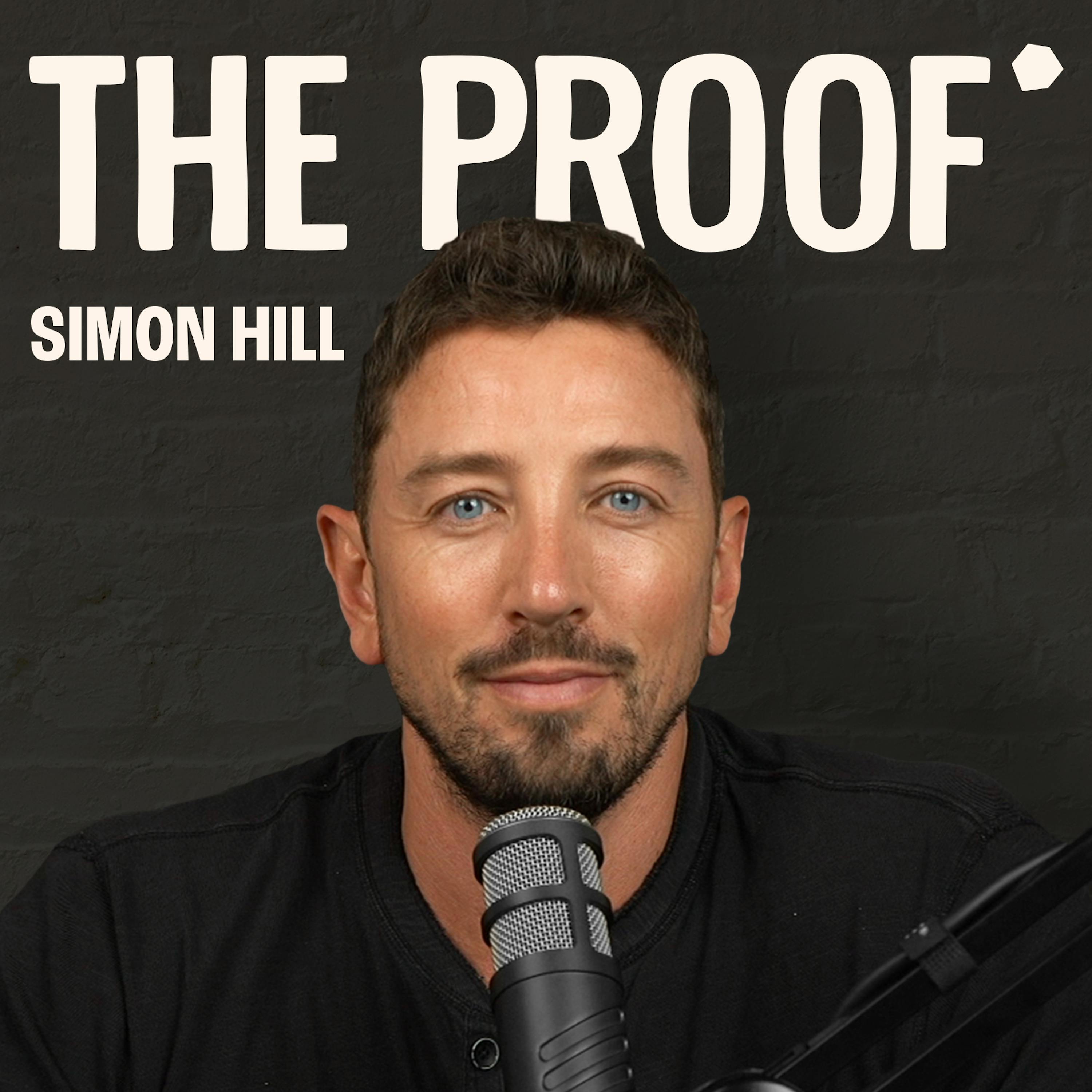.jpg)
The Plant Centered and Thriving Podcast
Welcome! If you're looking for plant-based inspiration, you've come to the right place! This podcast is here so you don’t have to feel alone on your plant-based journey. You'll hear from individuals who have taken the leap to go plant-based, why they did it, the struggles they faced, their words of wisdom for you, and how they're thriving now.
The Plant Centered and Thriving Podcast
Registered Dietitian and 20 year vegetarian, Sarah Heitzman, reminds us there is room in everyone's diet to enjoy their food
I love it when my two favorite things, dietetics and plant-based living intersect. Join me in this conversation with regional account manager from Dietitians On Demand, Sarah Heitzman, who has been a vegetarian for over 20 years! We swapped stories from our plant-based journeys that led us both down our career paths. Sarah, offers us a peek into her world where she reminds us that food is joy, not judgment.
Resources from this Episode:
Vegan Strong Team
Columbus Vegan Restaurants:
Dietitians on Demand
Dietitians Only Podcast
If you want to connect with Sarah, visit the following:
Email: sheitzman@dietitiansondemand.com
LinkedIn: Sarah B Heitzman
_____________________________________________________________________
WE WANT TO HEAR FROM YOU!
Have a question, suggestion or comment for the podcast? Fill out form here
Plant Centered Nutrition Essential Resources:
Welcome to the Plant-Centered and Thriving Podcast. I'm your host, ashley Kitchens. I'm a plant-based registered dietitian and virtual nutrition mentor. I was raised on an Angus cattle farm, grew up with a lot of GI issues and used the power of plant-based eating to promote healing. Here you'll find inspiration, ideas and encouragement for your own plant-based journey. I'm so thrilled you're here today. Let's get started.
Speaker 1:Welcome to the show. Plant-centered Listener. My name is Ashley and I am your host today, and today we have another story for you which I'm really excited to share. But before I do that, I wanted to let you know that I went to the Arnold Classic a few a couple weeks ago a few weeks ago at this point and it was a really fun event. So I'm part of a group called the Vegan Strong Plant-Built Team and what we do is we are a team of vegan athletes from all over the world and we get together to compete at places like Mr America, which is what we did in October of 2023. And that was a blast.
Speaker 1:So what we did this year, or most recently, is the Vegan Strong Team went to the Arnold and we had a booth set up there. We didn't compete or do anything like that. If you're familiar with the Arnold. It is not a natural event, so for any natural athlete, it is really impossible to win pretty much impossible. So we set up a booth at the Arnold Classic. There were so many vendors there and there were between 100,000 and 150,000 people that came in for this event. It was insane there were so many people. What was really neat was obviously there were very few vegan booths there. We happened to be strategically set up next to a vegan alternative like Meat Company, which was really fantastic and it smelled delicious all day. And what happened was is that our sponsors were incredibly generous and donated a bunch of product to us, and so what we ended up doing was we created gift bags to sell to support our team, so that we could continue doing things like Mr America and other events where we showcase that you don't need meat or dairy or any animal products to be strong, to be athletic, to be incredibly competitive. And so guess what ended up happening? We sold out of those goodie bags on a day two and we had a whole other day ahead of us. So the person who basically, like, organized the entire event was obviously so excited, but we had to figure out okay, well, how are we going to be here the following day and continue to sell things and make money, you know, and talk to people. We had some like extra products that our sponsors had sent, so we kind of just like put together these like fun other goodie bags that didn't include like everything originally, and we were able to sell those and guess what? We ended up selling out of those too.
Speaker 1:So I say that because people were interested. You know, even though this was not a vegan event whatsoever, people were genuinely curious about plant-based protein, about being competitive as a plant-based athlete. We even had a few vegans stop by, which were just a few out of like the thousands of people that we spoke to. It was so cool to talk to those vegans and, of course, everybody else too. But it was just a really fun event and it's so much more than just bodybuilding. We had actually this vegan athlete she there's a competition called Strongest Firefighter, I think that's what it is, and she was competing there and she was so excited when she came up to us. She was just absolutely amazing and you know she had competed. She was also vegan and so she was just beside. Like it was just so cool to like engage with her and also engage with a competitor who's also vegan. There are there's like knights fighting. So think of you know, I don't know 1800s, people had like armor on and they're fighting with swords. That was there.
Speaker 1:Arnold Schwarzenegger was obviously there. He would walk around, he would judge, he would talk to people Just very, very approachable, and guess what? He actually gave a talk and he talked about how he eats, how he's reduced massively his meat consumption, and he talked about that with a huge audience and y'all this is a meat loving audience. So it was really neat to hear him talk about not just his meat reduction but also how his doctor is much happy because he's eating this way, his heart doctor in particular. He also talked about the impact of consuming less animal products on the environment and it was very approachable. It was not preachy, it wasn't on a soap box and I thought that I just was like, I just thought that was really amazing that he took the time to talk about that, because he didn't have to. So that was really neat. If only we could get him to stop by the big and strong booth that's like on the agenda for next year. So Arnold, from what I understand, was introduced to it in 1970 and that's sort of what kick started Arnold Schwarzenegger's like interest in Columbus. He fell in love with the city and after winning Mr Olympia, mr World, which he won in Columbus in 1970. It was like game on and that's sort of how that all transpired, which was really cool.
Speaker 1:But while we were there, and if anyone's familiar with Columbus, if you live in Columbus, if you've visited Columbus there are so many vegan restaurants. I was amazed. So I live in Durham, north Carolina, and I feel like there are a lot of restaurants around here. I've seen a few of you ever end up visiting, write these down because they were so good. So if you're looking for something that's more whole food, plant-based, maybe even raw, portia's Cafe was delicious. I got some wraps from them and they were amazing. I've eaten there before even stopping through Columbus.
Speaker 1:Satan's realm is exactly what it sounds like it is. They make their own Satan and everything is pretty much Satan-based. So obviously, if you are allergic or don't eat gluten, that's not the place for you, but if you can tolerate gluten and you love gluten, dude, this place is amazing. Nick, he went there because he basically dropped me off for the event and then went on up to Michigan to visit his family and we stopped at Satan's realm for him and he had what looked like like a beef and cheddar from Arby's with curly fries and he said it was absolutely delicious. So that was a great one.
Speaker 1:Fourth and state literally the number four. Fourth and state they were amazing. They had stuffed crust, vegan pizza, milkshakes. They were incredible. I mean, if you're going to hit one place up like, that place was incredible. We also went to Woodhouse Bakery and Coffee, which was delicious. We went to a vegan cafe. That might have been it. Yeah, we went to a place called Commune, which is a fine dining vegan restaurant. That was really cool. I heard Yeez, asian vegan kitchen is really good. We didn't get to make it there, but I'm telling you, if you ever like, pass through Columbus or if you're in the area. My goodness, I was amazed by all the options, so I had to tell you that. Okay.
Speaker 1:So let me get into today's guest and if you're interested or want to learn more about vegan strong plant built or any of the work that we do, feel free to reach out to me on Instagram. I love talking about it and I love the work that these nonprofits do so. Today I have actually a dietitian guesting and I'm really excited to share her story. So she is an account manager at Dietitians On Demand and she talks about what that is. Her name is Sarah and she's been a dietitian for about seven years and she has a lot of experience working in acute care and long-term care and outpatient and behavioral health clinics. So she's done a lot of different things and she's been vegetarian for about 20 years. She started at a pretty young age and so she talks about what it was like to go vegetarian, not just 20 years ago, but also being young, like being in, I think, middle school age. So she goes into all of that and how it's impacted her life and what she does and different things like that. So I am excited to bring you Sarah's story. So let's welcome her to the show.
Speaker 1:Sarah, thank you so much for joining us today. I'm really excited just to learn more about you and your story. How are you doing? Good, I'm so happy to be here. Yeah, I'm excited to have you here. So, before we get into your personal journey when it came to going plant-based, I would love for you just kind of give us an idea of who you are what you do, even some fun hobbies that you do, which I read about.
Speaker 2:I work as a regional account manager for Dietitians On Demand, which is a dietitian staffing company. Prior to this position, I worked clinically in hospitals and long-term care facilities throughout the Virginia Carolina areas for a couple of years after my internship. I do also have, in addition to my nutrition degrees, a bachelor's in animal science from University of Connecticut, so I have a little bit of background in agriculture as well. For fun, I garden, I horseback ride and I foster cats.
Speaker 1:Nice, lovely. When you say Dietitians On Demand is like a staffing company, what does that mean for someone who might not know what that is?
Speaker 2:Yeah, so think of like travel, nursing or contract staffing. So we do more than that Nowadays. We were, I think 10 years ago, known more for contract staffing, but our Dietitians are all W2 employees of Dietitians On Demand and we are nationwide, so we place Dietitians in primarily acute and long-term care facilities throughout the US. And, yeah, I manage Pennsylvania, basically the Northeast in Pennsylvania.
Speaker 1:Oh okay. Oh, I didn't know that. That's amazing. I wonder if we've actually worked at some similar facilities, because I have gone through a consulting agency. I've worked with them in nursing homes for 16 years now oh wow and before I was even a Dietitian, and so I've covered nursing homes in North Carolina and Virginia and I really enjoy it. I have one facility now and I still really like doing it from time to time.
Speaker 2:Yeah, I worked in North Carolina, primarily Asheville. Oh wow so. I worked for Metz Culinary, which is a smaller food service company and for whatever reason, this account in Asheville. It's kind of it's so rural but it is like a city there, but it's hard to get people to come in from other cities in North Carolina, I think, because of the weather and the mountains and everything.
Speaker 1:Yes, I can see that. Yeah, I feel like those are the places that I go often to. Most are the ones that are just in more rural small town areas throughout Virginia and North Carolina.
Speaker 2:Yeah, yeah, and that's primarily where we staff is tough to fill, regional locations and then tough accounts as well. Yeah.
Speaker 1:Yeah, yeah, that makes sense. Well, good, so tell me more about, because you've been plant-based for a long time now, longer than probably a lot of us have, so tell me how that started way back when my parents were vegetarian prior to having us.
Speaker 2:So they were, I like to think they were kind of hippies in a day. And when my mom got pregnant with me, they went back to a meat diet for health purposes it was very hard back in the 80s and early 90s to be plant-based, so, I think, just for nutritional purposes of my well-being and then they kept that diet of eating meat while we were growing up, basically to not force us to be on a vegetarian diet if it wasn't really our thing. And then my sister and I actually decided, without even really them saying anything to us, when she was around 10 or 11 and I was 13, that we wanted to go back to not eating any meat. For us it was more of a animal welfare type of decision. So I got sucked into in my teens a lot of like PETA videos, which, of course, are quite traumatizing for a young you know, young kid or teenager. And so, yeah, that's kind of where it started from. I've obviously loved animals. I grew up around animals, so yeah, yeah, I think that's amazing.
Speaker 1:So for your parents in particular, it probably wasn't as much of a shock like, oh my gosh, what are we going to feed our kids? Because they had already done it for a while.
Speaker 2:Yeah, yeah, I think it was. At first. I think they were a little bit like are you sure you want to do this type of thing? Like do you really understand what it entails? And then I think we did start off by just cutting out red meat, if I remember correctly, and then we cut out chicken eventually and we didn't eat a lot of seafood growing up. It was, I mean, it's still expensive, but it wasn't part of our like day-to-day diet, so that wasn't really something that we had to cut out. But, yeah, they kind of knew what it entailed back then. We and my dad cooks a lot, so we had beans and what or meat alternatives were available, you know 20 years ago, which I'm sure we'll talk about, but it was limited, yeah.
Speaker 1:Oh, I bet it was. So dad cooked a lot which sounds fantastic A lot of beans, and I yeah, I don't even know if Morningstar was available back then.
Speaker 2:It wasn't Okay we basically just had, from what I remember, and we shopped at a grocery store chain called Hannaford from upstate New York, so very much like Price Shopper. Hannaford were really the only two grocery stores available to us in the upstate New York area and all I remember us getting and it wasn't even very good back in the day was, you know, those like Square Tofu, like firm and extra firm, like that's all we had and it was expensive and my parents were both state workers. So it's not like we were. I mean, we weren't. We were like middle class, upper middle class later on in my childhood but it wasn't something that like they. You know, we grew up eating brown bread, which is basically canned bread, and hot dogs and like pasta, so it was a little bit outside of our budget a lot of times. So we ate a lot of beans. Yeah, yep that makes sense.
Speaker 1:Yeah, cause some of those like foods that you're talking about, like rice, beans, potatoes, are really affordable. But if you're going to go anything beyond that, it can't. You have to kind of be particular, I'm sure, especially back then with your budget and everything and it wasn't always Hannaford.
Speaker 2:If they were out of stock, like that was the only place we can really get it from. I don't think Price Shaper even carried tofu products in the mid in the mid 90s, so I believe it.
Speaker 1:Oh my gosh. So that reminds me growing up. We had a family. They were vegetarians. I grew up on an Angus Cattle Farm, so very different from, very differently from how I ate now and there was a family that my mom was like yeah, they were kind of like the weird family. They were vegetarians, they only shopped at like the health food store and so, and probably because the options weren't there like the regular grocery stores- yeah, yeah, now that's different.
Speaker 2:I'm sure you've talked about it on other podcasts your background but I'd be curious to hear, like, what made you transition.
Speaker 1:Yeah, yeah, for those of you listening if you haven't heard my full story yet, just so real quickly. I grew up on an Angus Cattle Farm, but I also had a lot of GI issues growing up, so I struggled with chronic constipation up until I was about 25 years old, even after becoming a dietitian. And so finally, there was just like this light ball moment. I had watched Forks Over Knives, which came out in 2011. And I started making this connection of oh, maybe what I'm eating is actually impacting my body, how I'm feeling. I mean, I was really only going to the bathroom like once a week. It was that bad.
Speaker 1:I was on medication, and so I started adding some more plants. I swapped out my cow's milk for almond milk because there really weren't a lot of even options, you know, 12 years ago, milk wise and the more plants I ate, the better I started feeling, and so I was just like I don't want to go back to that old way, because I just felt so miserable for so long. I started going to the bathroom more regularly, didn't need medication to go to the bathroom, so I was like, ok, I'm in this for the long haul. So that's yeah. That was 12 years ago and here we are today. Awesome, awesome, yeah, yeah, very interesting, yeah. So I'm curious, because you have been plant-based for so long, what do you do for your vitamin B12? And what was that actually like? Was that talked about when you were younger?
Speaker 2:I think I took I've always taken a multivitamin. I mean I recommend to most of my patients to take one. There's always going to be, I feel like, in everybody's diet, a deficiency somewhere, because you don't eat the perfect diet every day. And we took vitamins back when I was a child, so I was always anemic. It just wasn't something that was really talked about and doctors really didn't know how to guide you. So our pediatrician was great but didn't really have the knowledge base back then to guide us, so we just basically supplemented. I definitely struggled with low energy. I was a competitive rower in high school and so I would take like basically like what protein shakes and supplements are, which I believe had some B vitamins supplemented into them as well. Nowadays it's much easier and I do still take a one a day.
Speaker 1:Yeah, I think that is like helpful and I think it's a good reminder for people. It's like we do not eat the perfect diet, like it would be really really challenging to do, and so, even if you did, your body, who knows what it's going to absorb and what it's not going to absorb, what environmental factors you're faced with Right?
Speaker 2:So we're creatures of habit. So, like we tend to eat the same things. Even if we think we have a very diet, we eat the same very diet. So, like it's just and it's not yet. Yes, it costs money, but I'm sure we could save money elsewhere by like your Starbucks drink every morning to cover the cost of that. So it's really not going to do any harm. I always used to give my horse supplements and my dad just said he had expensive P because he anything that he didn't have he would just pee out.
Speaker 1:So I mean, it's not yeah. That's amazing. So do you take anything else besides a one a day supplement wise?
Speaker 2:I take vitamin D in the winter and but that's really it, and then a melatonin for obviously sleep habit. But I still compete, do competitive rowing. I went to nationals last year women's nationals.
Speaker 1:Amazing. Yeah, I did not know that.
Speaker 2:So I, like I mentioned, I rode in high school and I just got back into it last year and we went to placed, I think, seventh nationally in our women's four.
Speaker 1:What does that like schedule look like for you? Training wise.
Speaker 2:It's not crazy, it's the master's program, so it's not collegiate or anything like that. But we train, they're bound three days a week until we're like ramping up for a regatta, and so it's just a bunch of working older, mostly women, although I do row in a couple men's boats, mixed boats too.
Speaker 1:So just for fun now. Yeah, that's awesome, though Do you train on the river in Richmond?
Speaker 2:Yeah, so our season. Basically the air and water temperature has to equal above 100. So we usually can get out on the water in late March, so and then we row up until like we had a race in November. So really only off the water for like three or four months a year.
Speaker 1:Okay, and so then do you do like indoor related?
Speaker 2:rowing. I don't, you can I have a rowing machine at home and I have a gym membership. So I'll just to me like driving down to the boat house to row when I could just do it in my house. So I'll just I do other activities in the winter time to kind of give me a little bit of variety as well. Yes, yeah.
Speaker 1:That is nice. Yep, yeah, that's awesome. I did not know that. That is really cool. It's a fun fact. Yeah, yeah, yeah. Is there anything that's particularly hard about the way that you eat, like anything that's particularly challenging?
Speaker 2:See, these days it's like even going out is there's usually always something available which is so different than it was even like five or 10 years ago. So I wouldn't, I mean, if it was hard, I feel like I wouldn't do it. That's true, yeah, but we, I made it through. You know, college was a challenge so I made it. I say that, but I did. You know, I gave myself some credit and made it through all of that without really backslid into it just for convenience purposes. So, yeah, I wouldn't really say there's anything truly challenging. It's a little bit more expensive, but honestly, meat is expensive these days anyway.
Speaker 1:So yeah, yeah, that is true. Meat, dairy eggs, like I feel like those prices just kind of gradually just keep going up. So yeah, yep, okay, being a dietitian this is a question that actually someone had asked me recently, so I was curious your response on this. Being a dietitian, do you often judge other people for what they eat?
Speaker 2:No, never, because I don't want people to judge me and it's really none of my business. So like if if somebody is coming to me and asking me for dietary advice, I'll give them my two cents and we'll have like a conversation about it would basically be like a shortened version of a, you know, dietary recall and what they're looking to get out of talking to me. But there's room in everybody's diet for them to enjoy life and enjoy their food and whatever that is to them. That's, you know, that's their decision and I hope they I hope they enjoy it, because I do yeah, absolutely.
Speaker 1:I think that's the main thing we want for anybody more than anything is just like that they are enjoying what they're eating and that they have a good relationship with food, and themselves too.
Speaker 2:Yeah, yeah that's really hard nowadays. I feel like I see that a lot, especially in the female population, unfortunately.
Speaker 1:Yeah, yeah, yeah, I could not agree more. So, all right, well, awesome. Well, thank you so much for coming on and sharing your story. I appreciate it. Thanks for having me. Yeah, where is the best place that people do want to connect with you?
Speaker 2:I'm on LinkedIn. I don't go on super regularly, probably once a week, so if you message me it might be a little bit before I get back to you. But you can also share my email address in the show notes if you want. At Dietitians On Demand.
Speaker 1:Yeah, and if there's a dietitian listening or someone who's maybe going to be a dietitian, where is the best place for them to get connected with Dietitians On Demand?
Speaker 2:Our website. We're super present on social media, so Dietitians On Demand Instagram, facebook, linkedin, but feel free to just if you find yourself on our website. Any of the forms you fill out will direct you, basically, to our company inbox, which we'll get a response from Whoever is the most appropriate person to talk to you.
Speaker 1:Yep and you all have a great podcast as well, which is fantastic. It's a great resource.
Speaker 2:Yeah, you can find me on a couple of the episodes, but we're recording for, I think, the next season. I think it might be season five or something. I don't manage it. Amazing, sometimes I'm on there.
Speaker 1:Yeah, and it's not Dietitians On Demand, it's called Something Else.
Speaker 2:Dietitians Only, I think.
Speaker 1:Yes, that's right.
Speaker 2:Yeah, they might be rebranding, but right now it's Dietitians Only.
Speaker 1:OK, all right. Well, we'll include those links in the show notes. If you want to connect with Sarah or Dietitians On Demand, you can easily do that. Again, sarah, thank you so much for joining us today.
Speaker 2:Thank you so much, I really appreciate it.
Speaker 1:Thank you so much for listening to the Plant-Centered and Thriving podcast today. If you found this episode inspiring, please share it with a friend or post it on social media and tag me so I can personally say thank you. Until next time, keep thriving.
Podcasts we love
Check out these other fine podcasts recommended by us, not an algorithm.

The Rich Roll Podcast
Rich Roll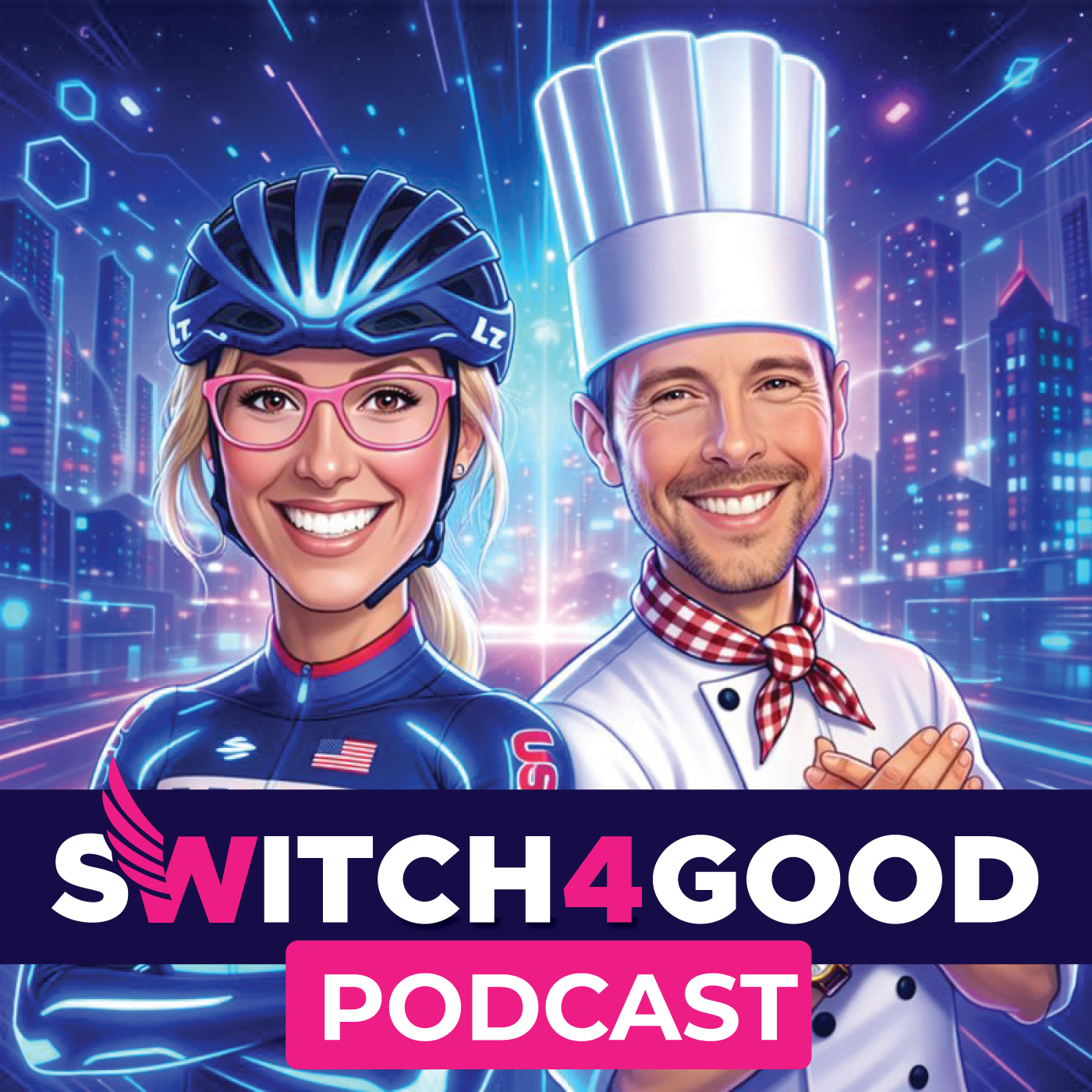
Switch4Good
Dotsie Bausch and Raphael Wrobel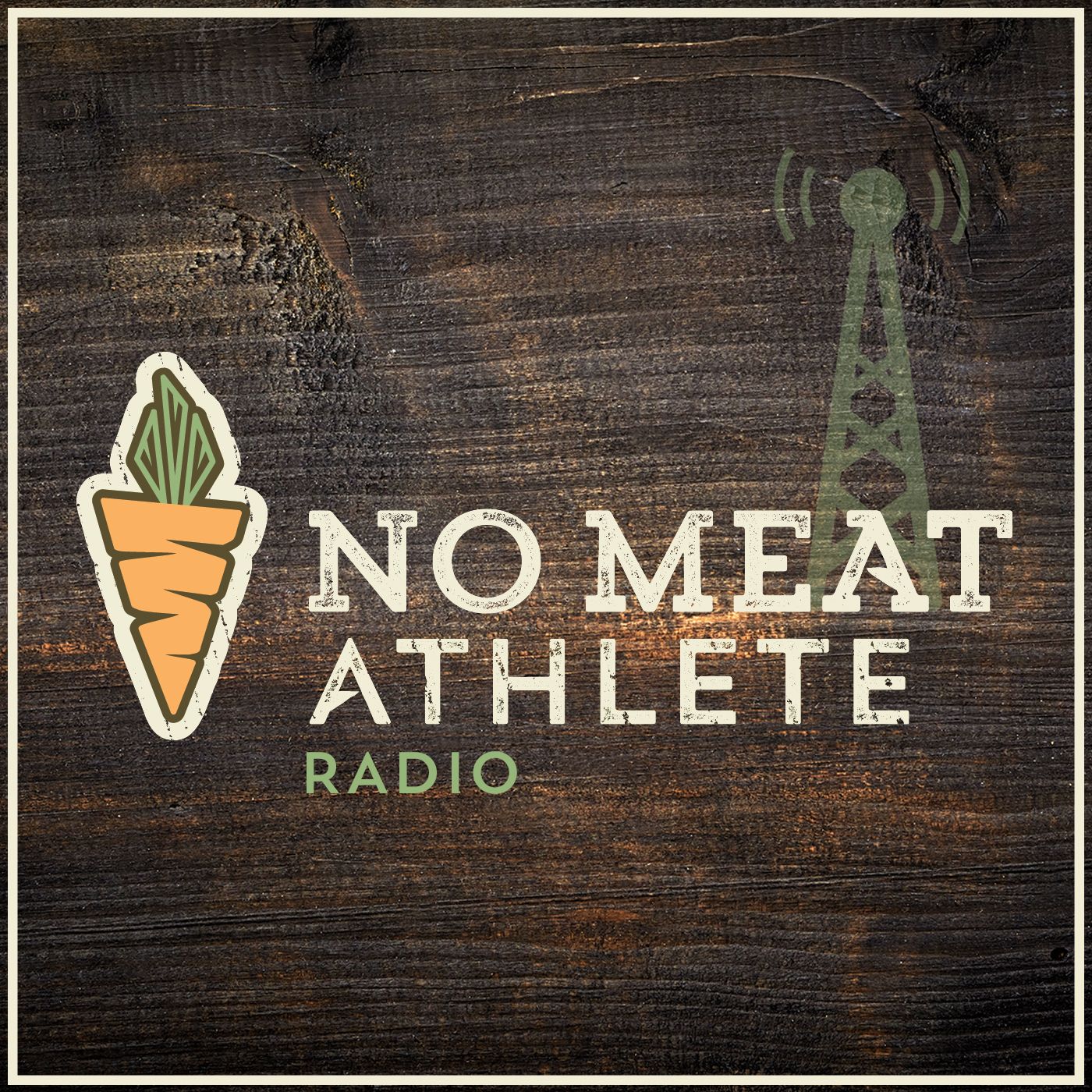
No Meat Athlete Radio
Matt Frazier
The Outlier Health Podcast
Matt Frazier, Matt Tullman, Isabelle Caputo, and Doug Hay
Plant-Powered People Podcast
Toni Okamoto and Michelle Cehn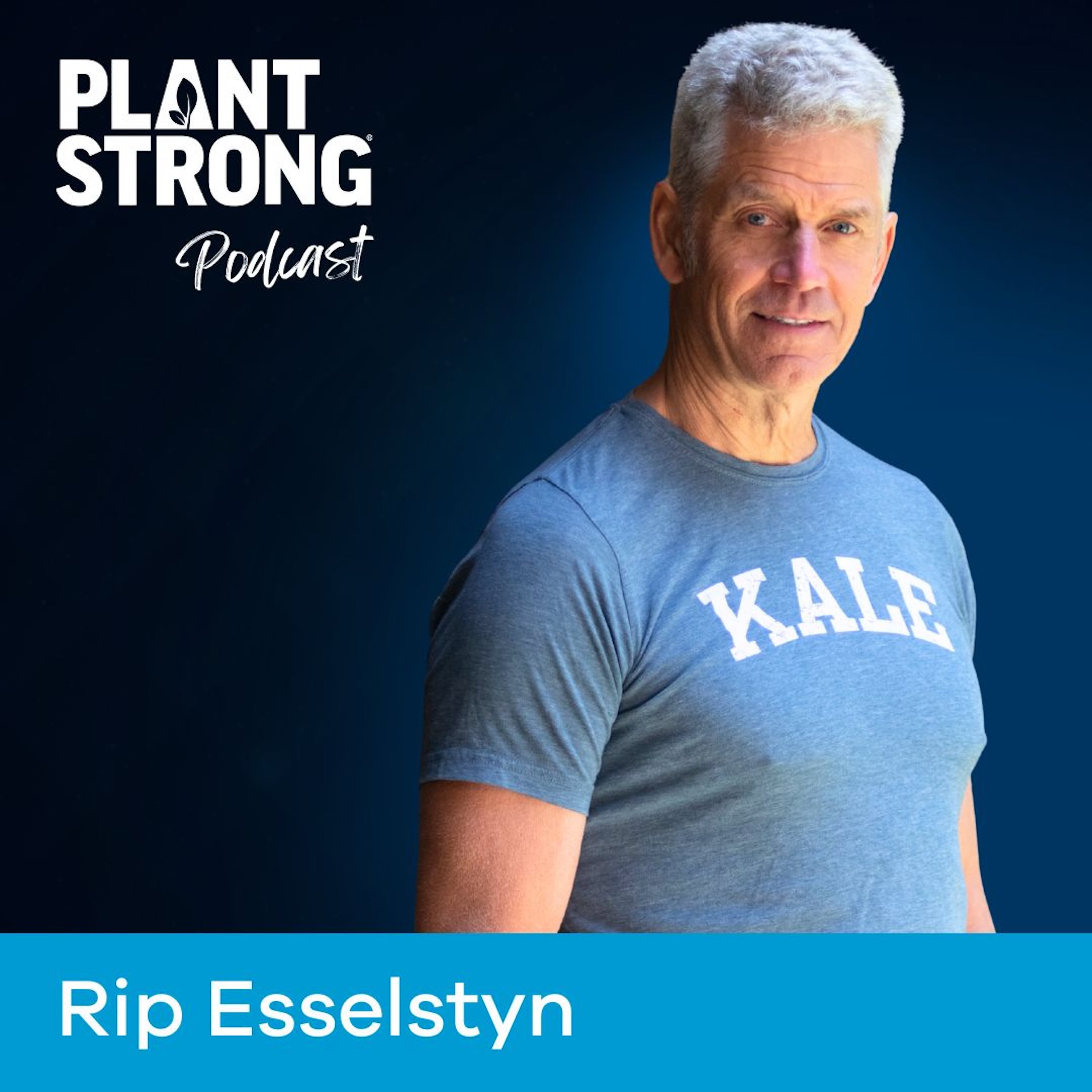
PLANTSTRONG Podcast
Rip Esselstyn
The World Vegan Travel Podcast
Brighde Reed
Vegan Kids Nutrition
Karla Moreno-Bryce, MDA, RD, LD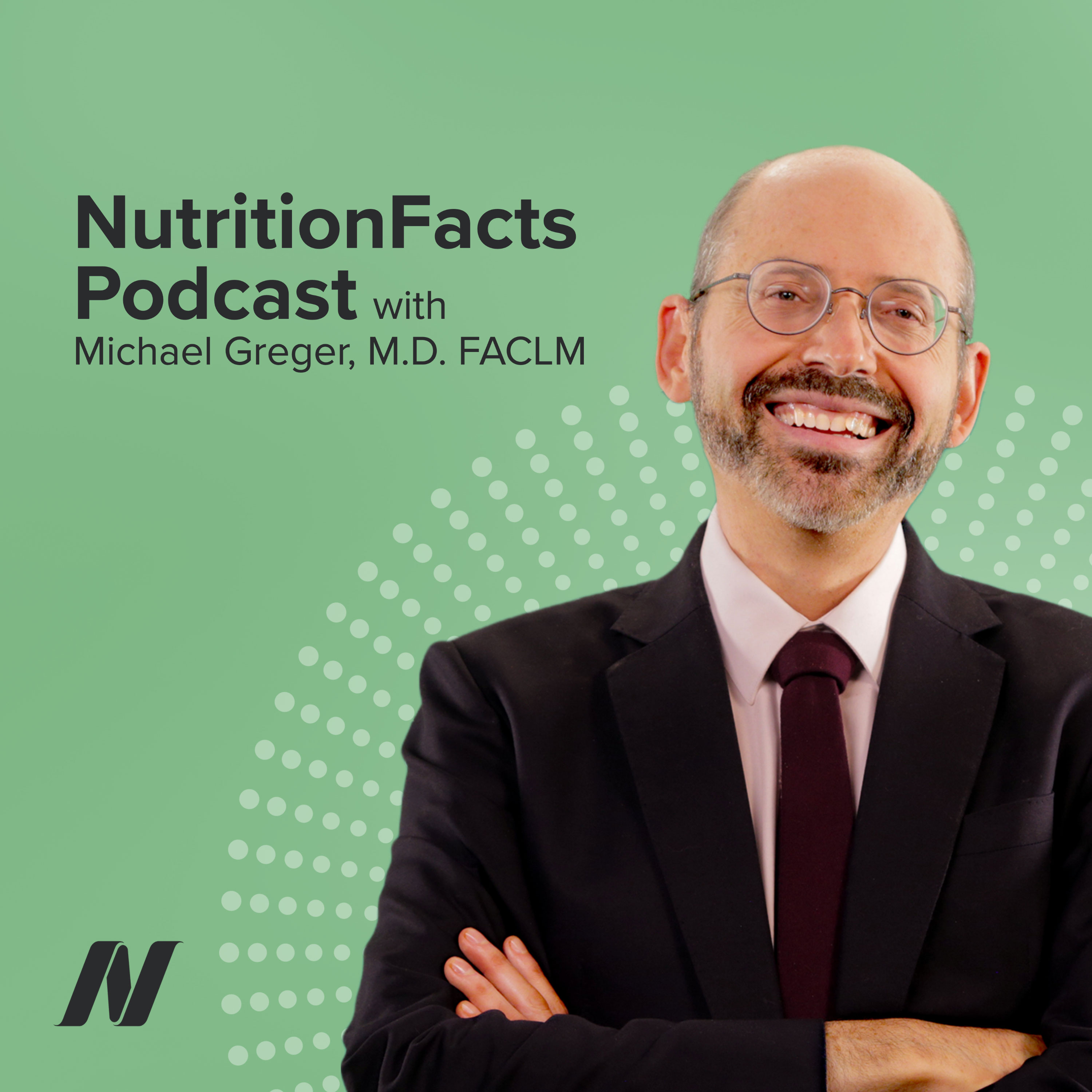
Nutrition Facts with Dr. Greger
Michael Greger, M.D. FACLM
The Plant-Based Morning Show
Matt Frazier & Doug Hay, presented by ComplementThe Plant Based News Podcast
Plant Based News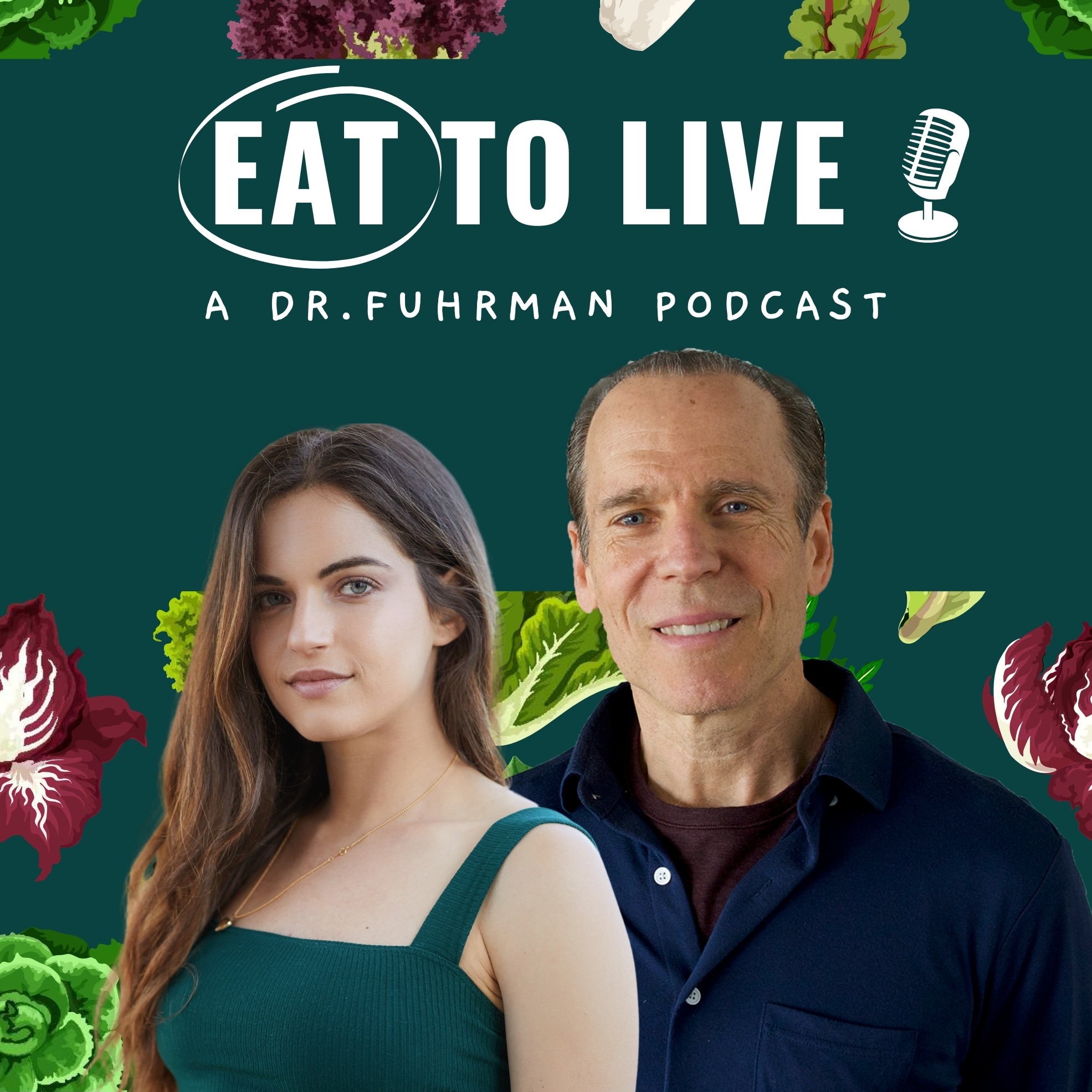
Eat to Live
Jenna Fuhrman, Dr. Fuhrman